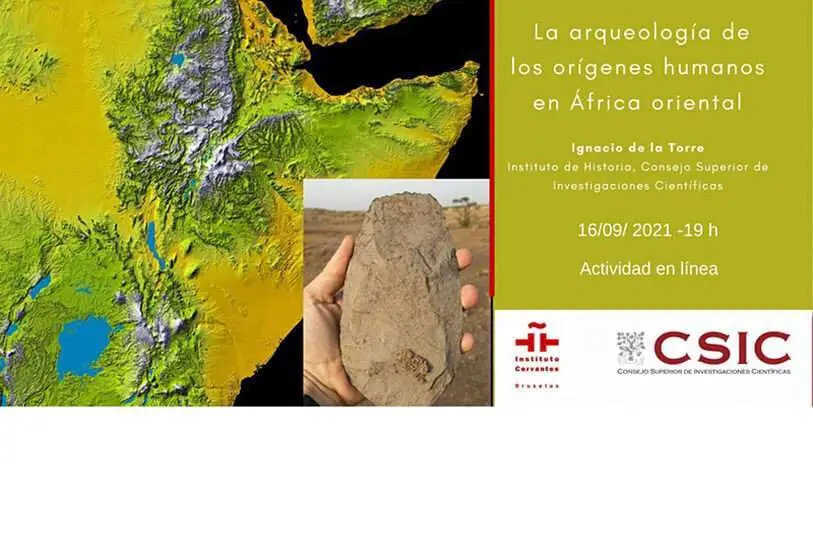The archaeology of human origins in East Africa

The Brussels delegation of the Spanish National Research Council (CSIC) and the Cervantes Institute in the Belgian capital are organising the conference 'The archaeology of human origins in East Africa' with the aim of shedding more light on the process of human evolution. The free online talk will be held on 16 September and will be given by Ignacio de la Torre, a member of the Institute of History of the CSIC.
The Rift Valley in East Africa is the most important region in the world for the study of the process of human evolution. From the most remote hominids to the first Homo sapiens, East Africa was the cradle where most of the species of our genus appeared and evolved. This has led to a large number of international teams currently working on research projects related to human origins in this region of Africa.
Since 2006, the CSIC team has been carrying out excavations at archaeological sites in the Rift Valley, in countries such as Ethiopia and Tanzania. They have investigated the period from the origins of the genus Homo, more than 2 million years ago, to the last hunter-gatherers of the Ice Age, a period that will be reviewed in this conference on the basis of the discoveries in East Africa.
Ignacio de la Torre has a degree in History (Universidad Complutense, 2000) and a degree in Geology (Birkbeck- University of London, 2015). He was a pre-doctoral fellow in the Department of Prehistory at the CSIC and received his PhD from the Complutense University in 2005. In 2005 he obtained a tenure-track lectureship at the Institute of Archaeology, University College London. Between 2012 and 2016 he was the Principal Investigator of an ERC- Starting Grant at the same Institute of Archaeology at UCL, where he held since 2015 the Chair of Palaeolithic Archaeology, and where he now holds a position as Honorary Professor of Palaeolithic Archaeology. In 2019 he obtained an ERC-Advanced Grant as a senior researcher and joined the Institute of History of the CSIC.
His main lines of research are the archaeology of human origins, hunter-gatherer societies, lithic technology, and the processes of formation of the Palaeolithic archaeological record. To date, he has applied this perspective to three geographical and temporal contexts, the archaeology of human origins in the Lower Pleistocene of East Africa and Asia, and the archaeology of the Middle and Upper Pleistocene in Spain.
Submitted by José Antonio Sierra, Hispanismo advisor.










